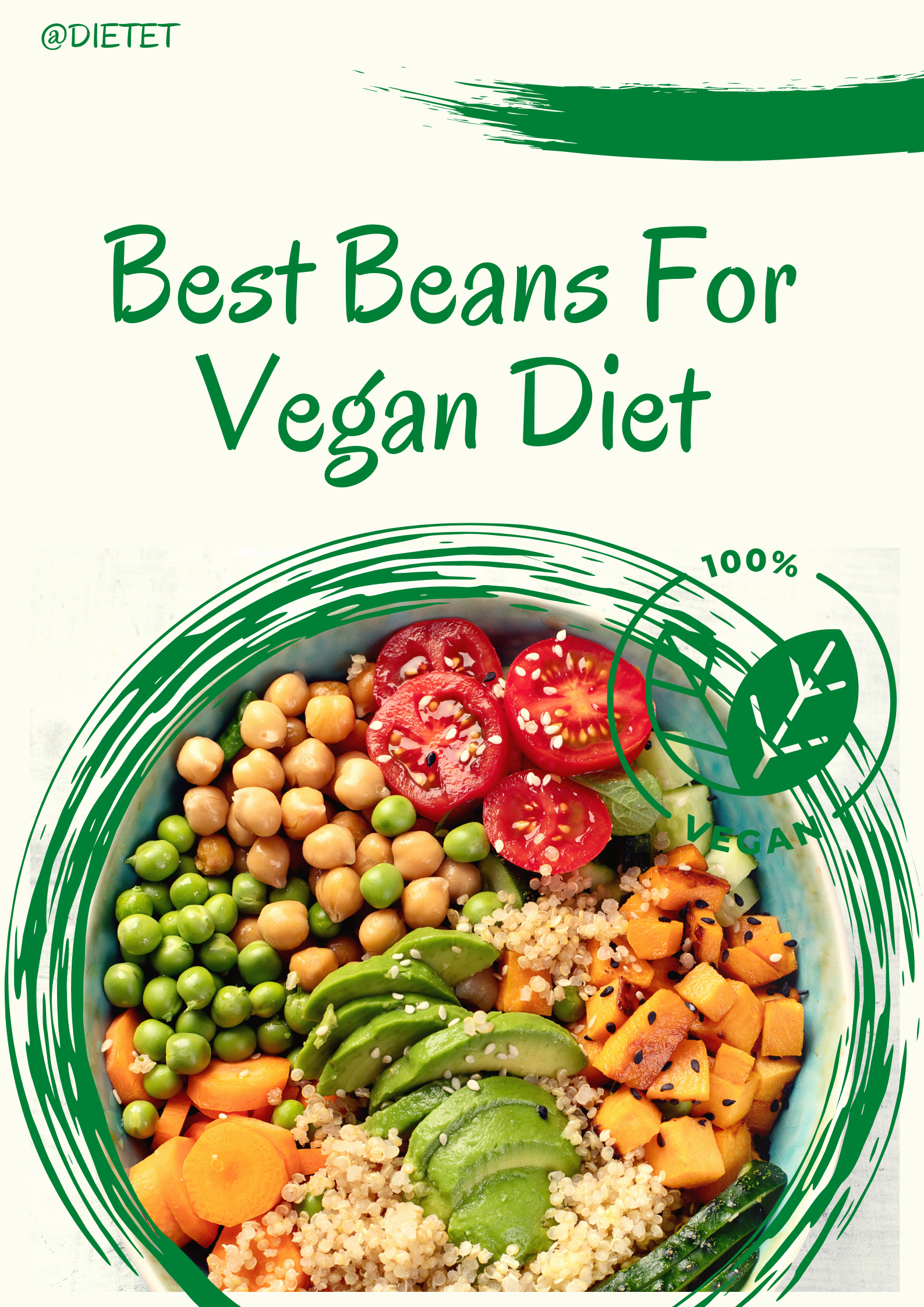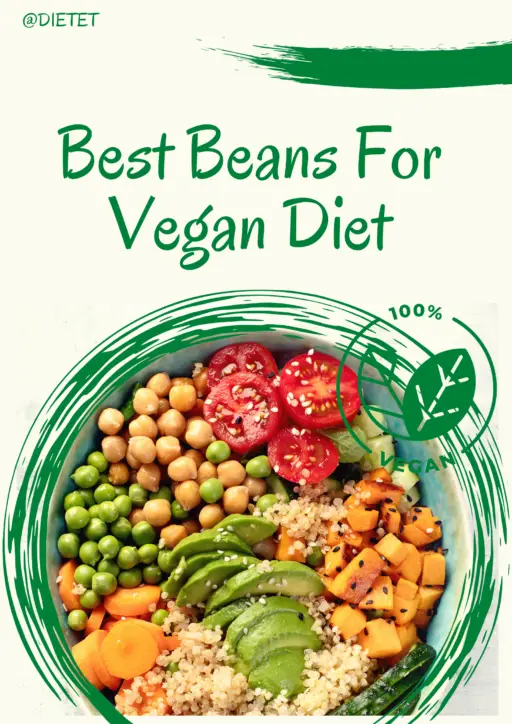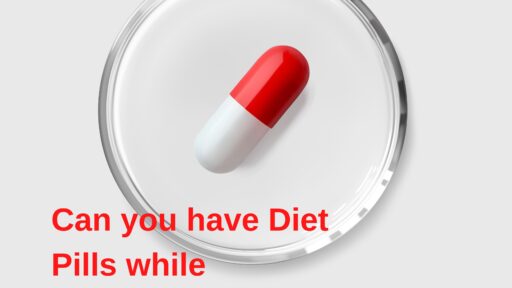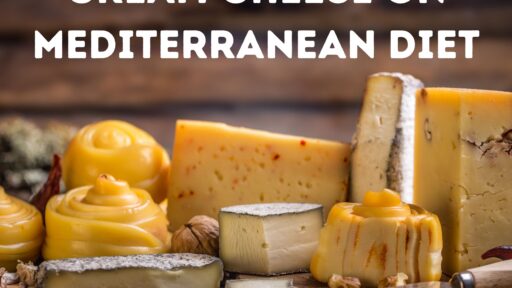Best Beans For Vegan Diet
Welcome to the wonderful world of plant-based diets! If you’re reading this, you’re probably either a dedicated vegan looking for some bean spiration, or a curious foodie aiming to diversify your menu. Either way, you’re in the right place!
Beans, dear reader, are a vegan’s best friend. Brimming with essential nutrients like protein, fiber, iron, and B vitamins, they pack quite a healthy punch. But with a world teeming with different bean varieties, you might be wondering, “Which ones are the best for a vegan diet?”
“As a cornerstone of the plant-based diet, beans not only provide essential nutrients, but they also contribute to the fullness we want from each meal. They’re versatile, economical, and delicious which makes them an ideal protein source for vegans.”
But let’s not just take an expert’s word for it, let’s delve into the best beans for your needs, taking into account the nutritional content, ease of preparation, taste profile, and versatility. Are you ready to embark on this legume-laden journey? Let’s start!

First up on our list, we have the mighty chickpeas. This versatile legume is known for its nutty flavor and creamy texture, making it a staple in dishes such as vegan chili or hummus. Chickpeas are high in fiber and protein, helping you feel full and satisfied while also delivering the essential nutrients your body needs. Plus, with soaking and slow cooking, you can easily prepare chickpeas to your liking.
Next, we meet the lentil, a small but mighty member of the bean family. Lentils can be easily incorporated into soups, salads, and more due to their soft texture when cooked. They’re an exceptional source of protein and other essential vitamins and minerals, notably iron which is particularly important for maintaining energy levels on a vegan diet.
Then we have green peas- a little pop of protein! With a sweet taste and starchy texture, green peas can be a wonderful addition to salads, pastas, and stir-fries. Being high in fiber, they aid digestion and contribute to feeling full and satisfied, making them a particularly good choice for those maintaining a calorie-controlled diet.
Moving on, let’s not overlook the humble black bean, known for its meaty texture and deep, rich flavor. Black beans are loaded with fiber and protein, making them a fantastic option for hearty meals like vegan burgers and Mexican dishes. Plus, they’re a great source of antioxidants, pushing your health quotient even further.
To round out our list, we have soybeans- perhaps the most versatile legume of all. Tofu, tempeh, edamame, and soy milk all arise from this remarkably nutritious bean. Soybeans present an impressive protein content and are loaded with essential amino acids our body can’t produce on its own. And, they’re relatively easy to prepare in a vast array of dishes, aiding you in maintaining a varied and interesting vegan diet.
Remember folks, while beans are a splendid source of nutrients, their usage and benefits can vary greatly by type. So mix it up, try all sorts, and find the legumes that best complement your vegan diet.
Know about the Vegan Diet
Best beans for Vegan diet
When it comes to incorporating beans into your vegan diet, variety is the spice of life. Committing to a vegan eating plan doesn’t mean you have to limit yourself. So, let’s delve into some more nutritious options.
Green Lentils: These are small legumes with a slightly peppery flavor. Lentils are a staple in many Asian cuisines and are valued for their high protein content, making them a great plant-based protein source. Their high fiber content helps control blood sugar and cholesterol levels.
Split Peas: When split in half along their natural seam, green and yellow peas become split peas. They’re a lovely addition to a vegan diet, providing an excellent source of protein and fiber. Additionally, they are rich in minerals such as potassium and magnesium.
White Beans: Few foods are better sources of fiber than white beans. They also contain a high amount of protein, making them an excellent addition to any vegan diet. Furthermore, they are rich in iron, a nutrient often lacking in vegan diets.
Edamame: These are immature soybeans, usually steamed or boiled, and served with salt. Edamame is not only delicious but also incredibly nutritious. They offer a whopping amount of protein, along with fiber, and various vitamins and minerals.
Black-Eyed Peas: You may know them from the popular New Year’s dish, Hoppin’ John. They’re packed with fiber and protein and are also a great source of iron. Black-eyed peas carry a low glycemic index, which makes them good for blood sugar control.
Remember, the key to a balanced diet – vegan or not – is variety. Aim to include as many types of beans and legumes as possible and soak in the tremendous health benefits they have to offer.
What are the top 10 beans to include in a vegan diet?
On a vegan diet, integrating a variety of beans can provide essential nutrients while keeping your meals flavorful and interesting. As you venture on this journey, here are some top beans to consider for their nutritional value and versatility:
- Black beans: A fantastic source of fiber and protein, black beans can be a staple in your vegan dishes. Mix them into salads, use them in soups, or make a black bean burger for a filling meal.
- Chickpeas: Also known as garbanzo beans, chickpeas are an excellent source of vitamins, minerals, and fiber. Roast them for a crunchy snack, blend them into hummus, or include them in your vegetable stew.
- Lentils: Packed with B vitamins, iron, and plenty of protein, lentils are a great choice for any vegan diet. Use them in a hearty soup, savory curry, or salad.
- Soybeans: Soybeans are a powerhouse of nutrients including high-quality plant protein, fiber, and calcium – crucial for a vegan diet. From tofu to tempeh and edamame, the versatility of soybeans is indisputable.
- Green peas: Apart from offering a considerable amount of fiber, green peas are a good source of vitamins A, C, and K. Incorporate them into a variety of dishes like stir-fries, soups, and pasta.
- Kidney beans: Known for their rich, robust flavor, these beans are loaded with protein, fiber, and B vitamins. Include them in chili, salads, or bean casseroles.
- Split peas: These budget-friendly legumes are high in fiber and protein. They’re perfect in split pea soup or mashed into a simple, healthy dip.
- Peanuts: Despite their name, peanuts are a type of legume that offers plenty of protein, folate, and monounsaturated fats. Enjoy them raw, add them to stir-fries, or blend them into peanut butter.
- Lupins: A less common legume, lupins are nonetheless packed with nutrients and are particularly rich in protein. They can be pickled or used as a crunchy snack, salad topper, or soup ingredient.
- Cowpeas: Also known as black-eyed peas, cowpeas are fiber-rich and help support digestion. You can toss them into salads, curries, or stews for a nutritional boost.
Remember, making the most of your vegan diet means not just eating beans, but varying them. Using different types not only keeps your meals exciting but also ensures you’re getting a mix of different nutrients. Don’t be afraid to experiment and enjoy the journey towards healthier, conscious eating.
What are the most popular beans used in vegan recipes?
Elevating vegan dishes to a flavorful gastronomic experience often involves beans. Some of the most common varieties may already be familiar to you, and they happen to be a vegan’s best friend.
Black beans, for instance, are incredibly versatile and often make their way into exciting vegan recipes. From soups and chili to burgers and salads, these are a staple due to their dense, meaty texture.
Next is soybeans, a cornerstone of vegan cuisine. Soybeans are the tried and true ingredient in tofu, soy milk, miso, and tempeh, among many other vegan favorites. They’re packed with plant-based protein, making them an excellent choice for vegans needing to fulfill their protein requirements.
Then we have lentils, featuring a somewhat peppy earthy flavor. From the common green variety to red and brown ones, lentils are brilliant in dal, soup, stew, and salad recipes. Plus, they cook quickly, making them perfect for busy weekday meals.
The list would not be complete without the mention of chickpeas. Best known for adding a creamy texture and unique taste to hummus, chickpeas are also awesome when roasted as a snack, baked into falafel, or mixed in a salad.
Last but certainly not least, other legumes like kidney beans and green peas add a nice variety to the vegan plate while delivering a good mix of fiber, vitamins, minerals, and protein.
Incorporating these popular beans in your vegan recipes not only brings a diversity of flavors but also makes sure you are giving your body the nutrients it needs.
Which beans are high in iron and suitable for a vegan diet?
There are innumerable varieties of beans known for their robust iron content that are perfect for a vegan diet. One such powerful bean is the Lentil. Rich in protein and brimming with iron, lentils are an invaluable inclusion in a vegan diet. They not only help to reduce blood sugar levels but are also recommended to prevent iron deficiency anemia commonly encountered by vegans and vegetarians.
Next on the list, and equally bursting with iron, are black beans. These small yet mighty legumes offer a variety of health benefits. They are great sources of dietary fiber, protein, and essential vitamins and minerals, adding depth to any vegan meal while promoting overall health.
Another mention-worthy variety is the Chickpea, also known as garbanzo beans. These wonderfully versatile beans pack plenty of fiber and protein while delivering a significant punch of iron, making them a fantastic choice for those following a plant-based diet.
It’s worth mentioning that while legumes aren’t able to match the iron content found in meat, they more than compensate with their impressive array of other nutrients. Plus, they come with the added benefit of zero saturated fats! These beans are champions in providing your body with everything it needs while sticking to your vegan lifestyle. Including them in your diet will ensure you’re getting enough iron and other key nutrients.
So, when planning your vegan diet, don’t forget to add these iron-rich superstars to the menu. Remember, variety is the spice of life – and the same holds for a nutritious, fulfilling vegan diet! Embrace diversity and enjoy the array of benefits these beans have to offer.
Are there any beans to avoid on a vegan diet?
No, not! All types of beans are an excellent addition to a vegan diet. With their significant reserve of fiber, vitamins, minerals, and plant-based protein, beans practically wear the crown in a well-balanced vegan meal plan.
From black beans to soybeans, each variety has a unique cocktail of nutrients to offer. They provide essential B vitamins, iron, folate, calcium, potassium, phosphorus, and zinc. Beyond that, their rich supply of plant protein makes them an invaluable resource for anyone pursuing a plant-based diet. This protein content, which often gives rise to food items like vegan meat, is particularly important for those who might otherwise find it challenging to meet their protein needs.
However, as with all things, moderation is key. Consuming beans in large quantities can lead to issues such as bloating and discomfort due to their high fiber content. So, it’s essential to listen to your body and adjust your intake accordingly. Moreover, if you’re using canned beans, opt for those without added salt or rinse them thoroughly to lower their sodium content.
Embrace the power of beans, and explore how to incorporate them into your meals. Whether they’re cooked or canned, whole or pureed, they can add a protein punch to your dishes and contribute significantly to your health and well-being.
Question And Answer
How should the beans be prepared for a vegan diet?
Preparing beans for a vegan diet is quite straightforward. Rinse your preferred beans thoroughly to remove any residual dust or dirt. Soak them in cool water for at least 8 hours or preferably overnight. Keep in mind that beans will swell so ensure there’s ample water. After soaking, discard the water, rinse the beans again, place them in a pot, and cover them with fresh water. Bring them to the boil and then reduce the heat to a simmer, cooking until they’re tender. This could take anywhere from 1 to 3 hours depending on the type and size of the beans.
Could you suggest a simple vegan bean recipe?
Indeed, here’s a simple yet hearty vegan chili recipe with kidney beans. You’ll need olive oil, diced onions, bell peppers, minced garlic, chili powder, cumin, a can of diced tomatoes, green chilis, and kidney beans. Start by sautéing the onions, bell peppers, and garlic in the heated olive oil until they’re soft. Add the chili powder and cumin, stirring for another minute. Add the tomatoes, green chilis, and beans and bring this to a simmer. Let it simmer for about 20 minutes for the flavors to meld together. Season to taste and enjoy!
Do beans benefit animal performance?
While beans are a staple in many human diets, they are less common in animal feed due to their high levels of certain anti-nutritional factors. However, they could still provide beneficial protein and fiber when properly processed and included in appropriate amounts. Always speak to a vet or pet nutritionist before introducing beans into your pet’s diet.
What makes beans good for a vegan diet?
Beans, like navy and lima beans, are little powerhouses of nutrition! They’re packed with plant-based protein which is crucial for muscle-building and tissue maintenance in a vegan diet. Many varieties of beans are also rich in essential vitamins and minerals, including iron and zinc. They provide a good dose of soluble and insoluble fiber which aids in digestion and regulates blood sugar levels. They’re also incredibly versatile in recipes. This makes them an excellent option to include in a vegan diet.
Final Thought
Now that we’ve covered all the angles, it’s clear that beans are a vegan powerhouse when it comes to meeting your nutritional needs – particularly protein. Whether you’re habituated to old favorites like the humble kidney and navy beans, or excited to experiment with less common varieties like mung and clover, all varieties can add a substantial protein punch, along with a bevy of other essential nutrients to your vegan diet.
Opting for these plant-based proteins has not only been a phenomenon in Europe but it is fast gaining traction worldwide. What’s even more appealing is their versatility in vegan cuisine — from wholesome salads and soups to comforting stews and spicy curries, beans can enhance any dish with their distinctive flavors and textures.
From a global perspective, embracing a vegan diet, which naturally includes generous servings of beans, also contributes to animal welfare and improved overall animal performance. By shifting consumption away from animal products, we’re letting our animal friends lead better lives while simultaneously doing wonders for our health and the environment.
As with any dietary change, remember to listen to your body and adjust accordingly. While no food should be tagged as off-limits, you should avoid beans that don’t agree with you.
So go ahead and make beans a staple in your vegan journey. They’re nutrient-dense, versatile, and delicious. Remember, variety is the spice of life – so don’t just stick to one or two types of beans, explore them all!
To wrap it up, beans are some of the best foods we can eat for our health. They’re rich in nutrients, abundant in protein, and delicious in so many different meals. So, whether you’re a dedicated vegan or just dabbling in plant-based eating, it might just be the right time to embrace the power of the humble bean.




